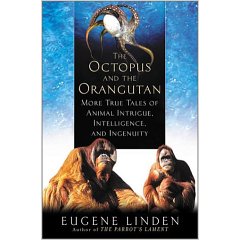I first learned of the book Life, Liberty, and Happiness: An Optimist Manifesto by Frank S. Robinson from an e-mail from the author himself. I am not certain how I came to be on his list of e-mail addresses but he correctly identified me as being within his target market. Being fond of the Humanist Manifesto and having named my own religion Optihumanism, the subtitle immediately caught my eye. I was further intrigued by the fact that he originally started out to write a letter to his daughter about life, something I have considered doing for my own children.
I have described my Optihumanism as a blend of Religious Humanism,
Neo-Objectivism, and Libertarian Transhumanism. Being at the tiny overlapping intersection of what are small minority beliefs to begin with, I suspected I was alone. You can imagine how pleased I was, then, to read in his introduction that his book "reflects elements of libertarianism, humanism, objectivism, and so forth". I even found a footnote in his chapter "The Meaning of Life" that leans toward Transhumanism.
The more I read, the more astonished I became that this book could so closely mirror my own beliefs while simultaneously covering so many different topics. It was not until I reached one of the last chapters where I finally found one issue, capital punishment, where I was not in substantial agreement with the author. It made me wonder how was it that we thought so much alike.
One possibility is that it is because we are reading many of the same books. A criticism I do have of this work is that it perhaps leans too heavily on repeating historical examples I have already read in other places. I can forgive this, however, if I consider that the author might have had a different target audience in mind where these core examples are still novel.
My other criticism is what I perceive to be his overuse of footnotes for parenthetical side comments. This seems to me to distract from the flow of reading his main text. I wonder if this comes from his twenty years of service as a judge in which footnotes in legal opinions frequently do convey significant information yet are considered subsidiary.
I started heartily recommending this book long before I finished reading it. Now that I have completed the text in its entirety and I am assured that there is nothing in it to which I have any strong objections, I am pleased to say that I am adding this title to both my top ten books list and my Optihumanist reading list. I plan to purchase a number of copies for my friends. I look forward to reading additional publications from this author in the future.
The table of contents follows:
Introduction
The Meaning of Life
Reason, Science, and Human Values
Living a Good Life
Happiness is a Choice
Satisfaction
Consciousness, Thought, and Personal Responsibility
Always Question
Relativism and Nonjudgmentalism
The Mystery of Creation
Freedom from Fear
Love, Marriage, and Sex
Political Vocabulary
The Social Contract
Individualism and Society
Government is the Problem
The Forced March to Paradise
The Era of Big Government
But What About the Truly Needy?
Wrongful Rights
America the Beautiful
The Morality of Free-Market Capitalism
Globalization and World Poverty
Why Corporations are Not Totally Evil Scum
Territoriality and Tribalism
Why the Gloom and Doom Crowd is Wrong
Man, Technology, and Nature
History and Its Lessons
Freedom of Expression
Race
Pro-Life and Pro-Choice
Animal Rights
Crime and Punishment
Homosexuality
The War with Islamic Extremism
Coda
Index

























